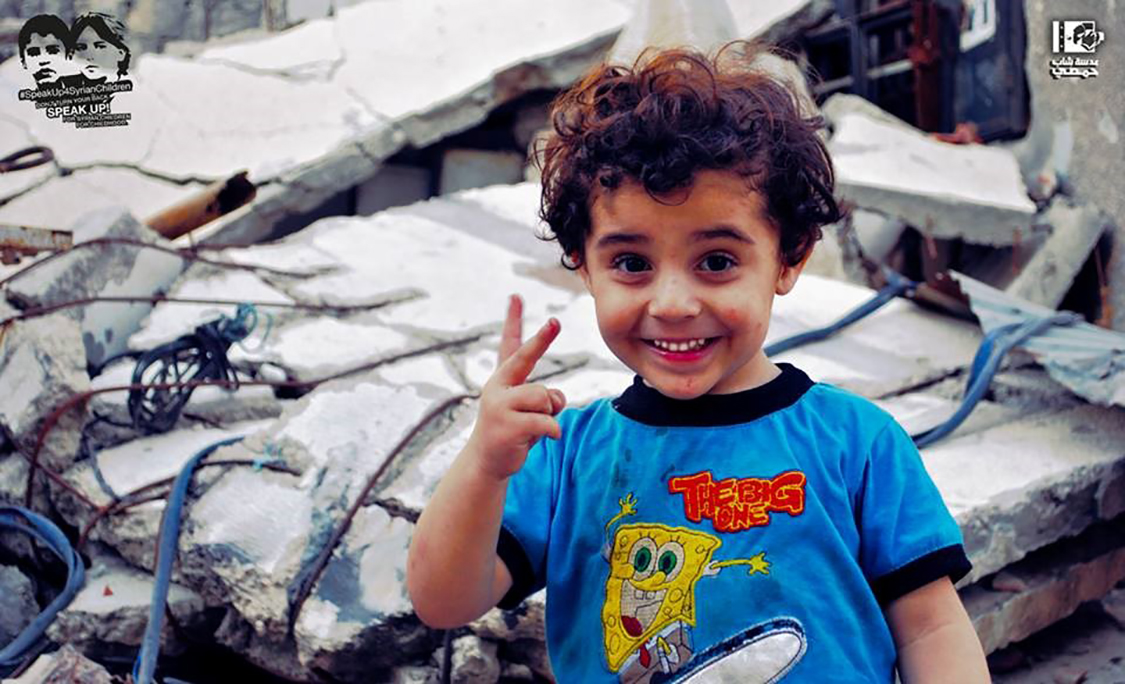Palestinian-Syrian refugees focus of play 'Desert of Light'
By Daniel Aloi

Palestinian-Syrian playwright Rama Haydar’s “Desert of Light” is a tragicomic and human portrayal of the refugee crisis in the Middle East – and “a very inside perspective of the brutal experience of war and the impossible dilemmas that have faced these refugees,” said Department of Performing and Media Arts (PMA) assistant professor Rebekah Maggor, the play’s co-translator and director.
The main characters are two young Palestinian-Syrian refugees, trapped along with 18,000 others in the Yarmouk refugee camp under siege outside Damascus, Haydar’s home city. Before civil war broke out in 2011, the “camp” was an urban neighborhood for 160,000 Palestinian refugees.
PMA is presenting the play’s public premiere in the Schwartz Center’s Flexible Theatre, Sept. 23 at 7:30 p.m. and Sept. 24 at 2 and 7:30 p.m., with performances followed by panel discussions.
“For people who come to see this play, this is not the perspective they are getting in the media,” Maggor said. Citing “dichotomous depictions of Palestinian, and now Syrian, refugees,” she said: “They are portrayed only in extremes, as either victim or terrorist, as a collaborator or freedom fighter; Muslim and fanatic or progressive and secular. You rarely see them from a grassroots perspective, that they are real and complex people.”
Haydar, 28, was born and raised in Damascus. Although she and her parents were Syrian-born, as people of Palestinian origin they are denied citizenship. She began writing “Desert of Light” in 2013 after fleeing Syria for Lebanon.
“In the translation, and bringing in the student actors, we talked a lot about connections,” Maggor said. She and Haydar sought to create, “in careful and subtle ways, connections between the refugee experience and the experience of marginalization, and people in the United States who are also very marginalized. These [characters] represent Palestinians, and it’s also a broader characterization.”
The play “respects the historical specificity of these Palestinian characters, but also represents a diverse underclass around the world who, due to violent conflict and poverty, find themselves increasingly marginalized by an increasingly globalized economy,” she said.
“By contrast, the two characters in ‘Desert of Light’ defy these categories and these extremes we are regularly presented with,” she said. “They are not vehicles for prefigured political stances, they are fully fledged dramatic characters.”

The multimedia production features a diverse and international student cast of 12, local musicians and choreography by PMA lecturer Byron Suber.
“The students have been in rehearsal with Rama for the last week, taking her out to dinner and asking her questions. That’s one of the most extraordinary things,” Maggor said. “They’re so curious and so committed, and are having a revelatory experience working on this play and working with Rama.”
The interaction with students “was a great experience,” Haydar said. “They were asking me questions about the war and my experiences; that was the great exchange we were having. I was asking them about America and situations here. We were learning from each other. They are in empathy to represent the struggle in Syria through their bodies and their voices.”
Each performance is followed by a conversation with Haydar, Maggor, cast members, Cornell faculty and guest scholars offering political and cultural contexts for the play, such as analysis of the Syrian refugee experience, the global crisis of migration and displaced persons, and contemporary Arab drama. The Sept. 24 matinee panel will be in Arabic.
Panelists include Deborah Starr, associate professor of modern Arabic and Hebrew literature and film in the Department of Near Eastern Studies; PMA professor Bruce Levitt; and professor of history Mostafa Minawi.
“As more than a glimpse into the life of a volatile and blood-soaked region, ‘Desert of Light’ reflects themes and concerns with government corruption, economic inequality, the status of immigrants and refugees, and also the contradictions of philanthropy. These themes are hardly specific to Syria, and they carry equal relevance for theatergoers beyond the Middle East,” Maggor said.
“Desert of Light” is the first in PMA’s yearlong series of works by women playwrights, and is part of the Cornell Council for the Arts’ 2016 Biennial, “Abject/Object Empathies.”
Media Contact
Get Cornell news delivered right to your inbox.
Subscribe